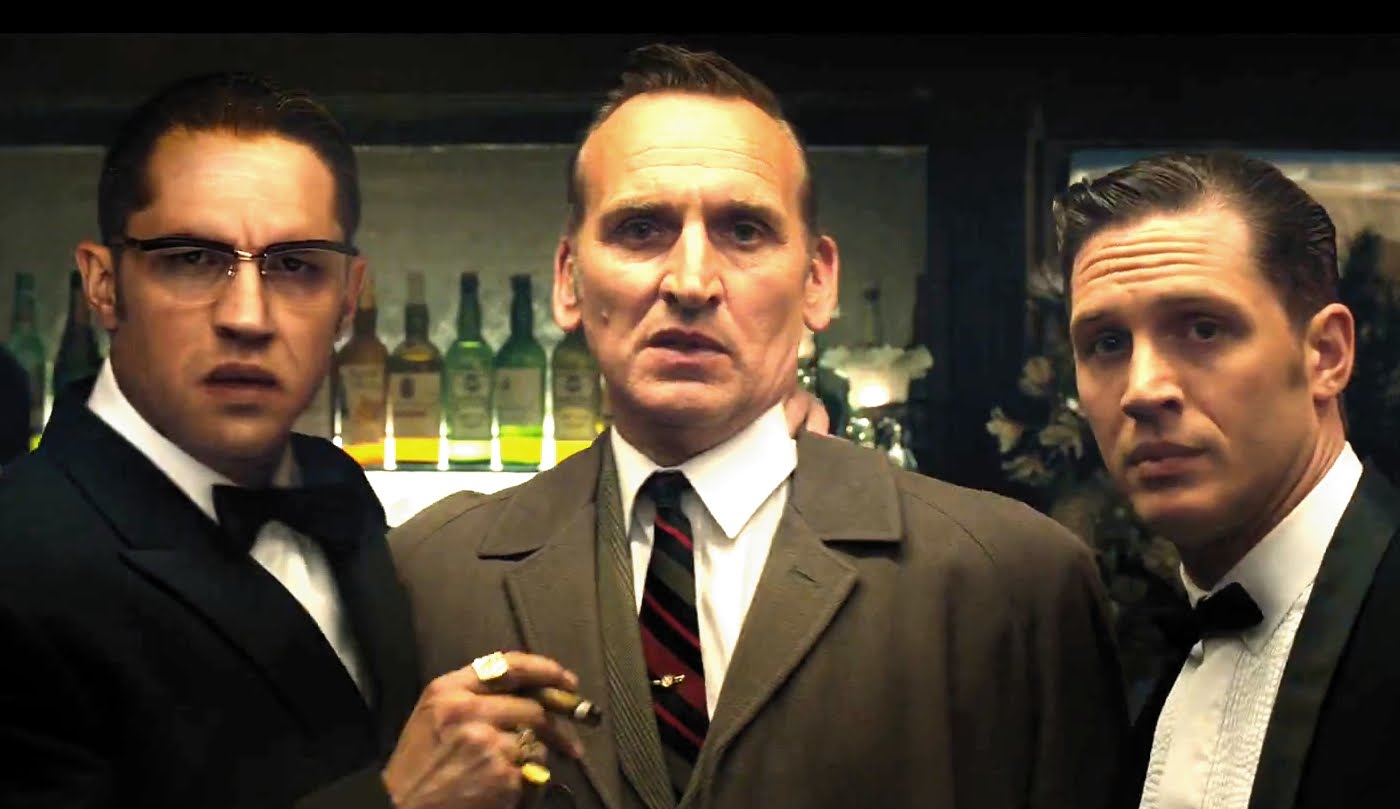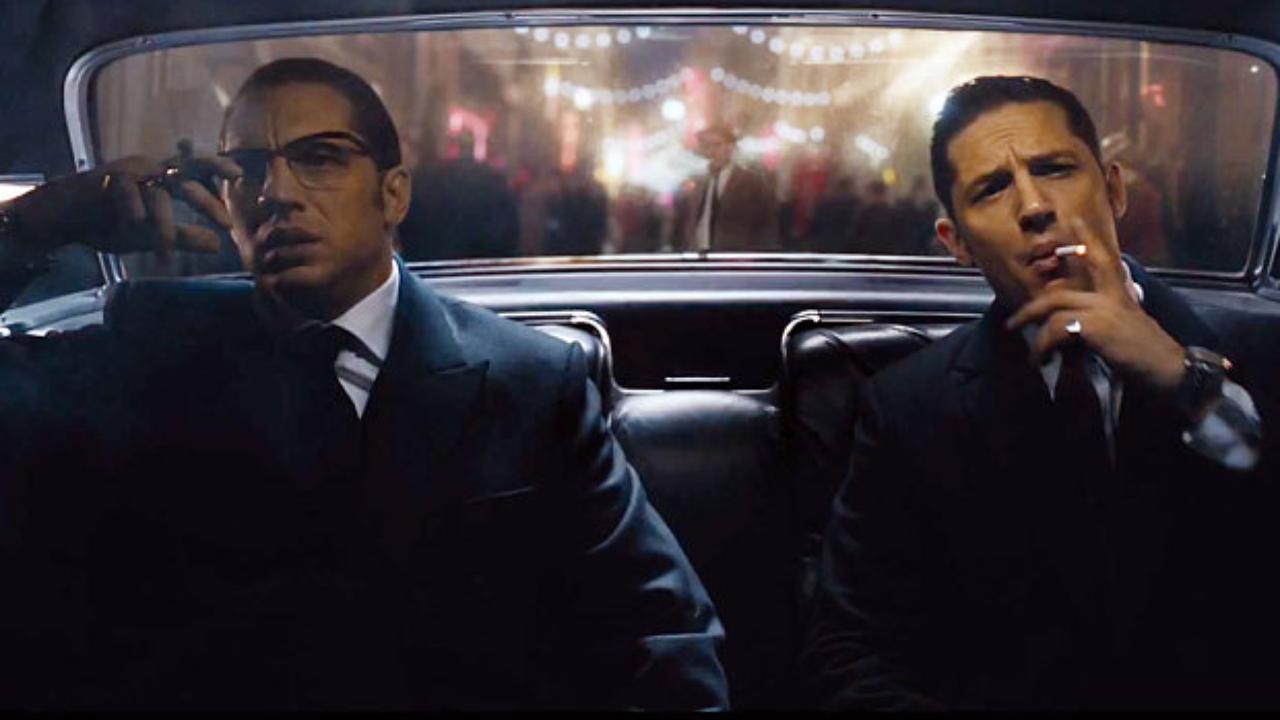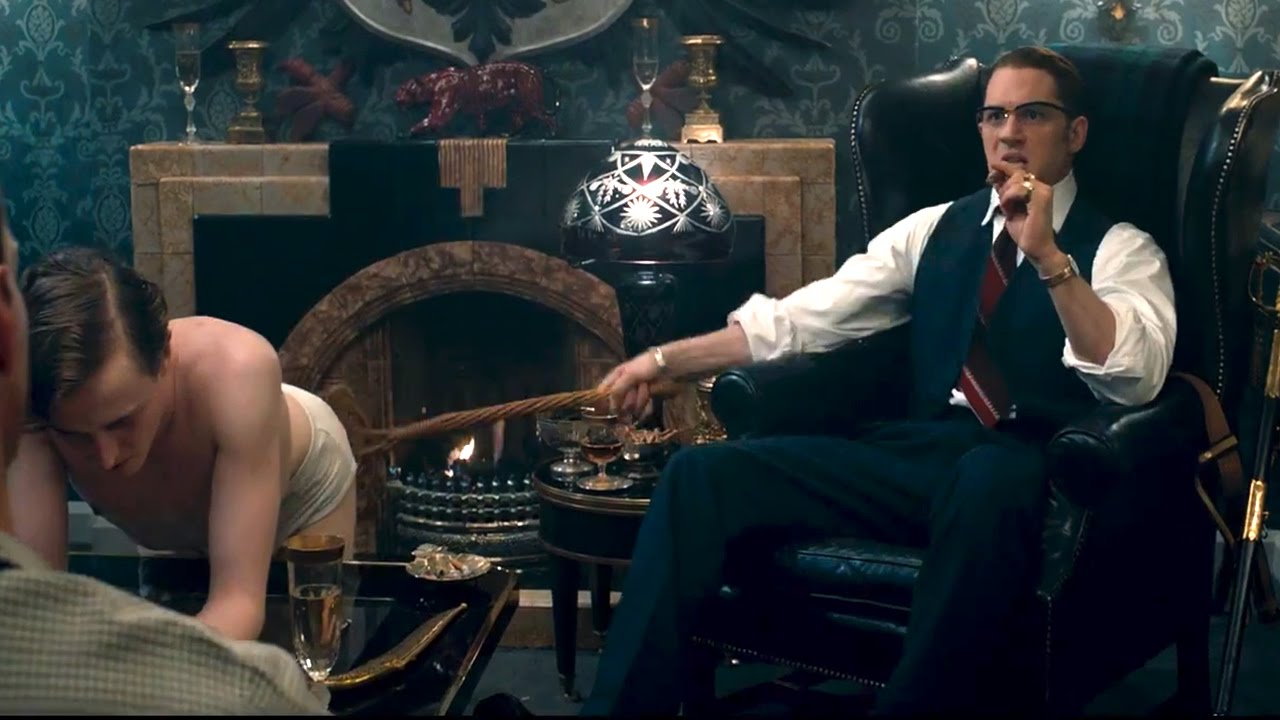US writer-director Brian Helgeland (A Knight’s Tale) evokes an elegantly detailed and extremely dangerous 1960s London as he depicts the thorny and short-fused lives of East End underworld rulers and twin brothers, Ronnie and Reggie Kray.
Helgeland, who is perhaps best known for writing and receiving an Oscar for Best Adapted Screenplay for L.A. Confidential (1997) here has based Legends off of John Pearson’s book “The Profession of Violence: The Rise and Fall of the Kray Twins” with mostly winning, certainly unsettling, but far too overwritten results (To wit when Reggie delivers: “Home at last, like Agamemnon returned from Ithaca!”).
Tom Hardy (Locke) mesmerizes in his dual role, infusing as much anarchy in the UK as possible, relishing in the clear contrast between the Krays; Reggie is ruthless but personable and facile whereas Ronnie is his dim doppelgänger, prone to tantrums owing to an undiagnosed mental health quandary and whose violent tears are frequently terrifying.
Hardy blows hot and cold, cruel and kind with equal eclat. It’s a performance that risks indulgent overdoing, but as the very title of the film declares, these are larger than life brothers who come to believe their own legend.
Perhaps owing to the tradition of the gangster epic, particularly nostalgic-infused and stylishly dizzying Goodfellas, Helgeland occasionally presents Legend like Scorsese-lite. There’s the requisite intertitles and freeze frames, and he oddly relies on the overused narrative device of the voiceover.
Perhaps as something of an homage to Billy Wilder’s Sunset Boulevard, Helgeland’s story is told from the perspective of Frances Shea (Emily Browning), doomed teen bride of Reggie Kray, little more than a juvenile ingenue when we first meet her.
Browning (Sleeping Beauty, God Help the Girl) is quite good in her role, and the early stages of her courtship by Reggie takes pains to detail a life that is alternately horrifying and seductive. Frances meets Reggie owing to her older brother Frankie (Colin Morgan), who’s a driver for the Krays, and straight away her mother, Elsie Shea (Tara Fitzgerald, excellent) looks askance to their relationship.
Later, when Frances turns 22, she marries Reggie, Elsie dresses in funerary black, refusing to witness the ceremony, she’s disgusted and spurned at their union. “Love is a witness,” Frances spits at her, and ties the knot anyway.
As Frances and Reggie soldier on as man and wife – a destructive avenue that would eventually send Frances to self-slaughter – Mrs. Shea remains rigid with unsentimental astringency, moving from pathos to hysteria, especially in her regard towards Reggie driving her daughter to destruction.
Frances is not alone in succumbing to the tornado that the Krays call down, and the gangster tale at the heart of Legend is sordidly exciting, as it should be. There’s black comedy and tragedy at every turn and Helgeland displays an overconfidence that’s mirrored somewhat by Ronnie and Reggie.
For all their swagger and subversion on their road to criminal ascendancy there’s vivid sentiment as well as fractured wisdom.
Another wise move from Helgeland in his telling of Legend is to not take the traditional biopic path of telling their tale from cradle to grave—a lesson unlearned by Peter Mendak in his 1990 hit-and-miss movie, The Krays—instead focussing on a pivotal era. Here he hones in on when the brothers owned and ran Soho nightclubs. Ronnie, with his preference for boys yet intolerance for boyish behaviour, himself acts out all the time in front of an audience, and frequently in their own glitzy venue.
“Whatever he’s done, he’s your brother,” says Reggie’s mom, Violet (Jane Wood), trying to tame the tempest between the frequently feuding brothers. She’s maternal to her sons, and likeable, and her support of their bloodthirsty and retaliatory ways is something of a shock, at least to those unfamiliar with the fine points of the Krays crime legacy. Of course mealy mouthiness isn’t really on the menu here and an eye-rolling ending with feelgoodery isn’t going to happen, either.
For all the excellent actors on hand throughout Legend—David Thewlis shines as business manager Leslie Pain, and rival gangster Charlie Richardson (Paul Bettany) has some choice scenes as well—none can match Hardy’s head-turning two-pronged assault. When he’s not in the frame the film tends to drag.
Nipping at the Krays’ heels is Scotland Yard’s aptly named Inspector Nipper Read (Christopher Eccleston), who is underutilized and could have perhaps buoyed the uneven keel of the picture substantially. Too bad.
Cinematographer Dick Pope (Naked, Mr. Turner) lenses with an intense yet subdued color palette, and combined with first-rate production design from Tom Conroy (Breakfast on Pluto) make London’s East End in the Swinging Sixties crackle and spark, but nothing can call away attention from Hardy, who carries the film with his alternately unhinged and equitable representation of selfsame mafiosos.
Genre fans will find the familiar crimeland chapter and verse engrossing, but all and all Legend is lacking anything that isn’t handed-down or truly the least bit legendary.
Taste of Cinema Rating: 3.5 stars (out of 5)
Author Bio: Shane Scott-Travis is a film critic, screenwriter, comic book author/illustrator and cineaste. Currently residing in Vancouver, Canada, Shane can often be found at the cinema, the dog park, or off in a corner someplace, paraphrasing Groucho Marx. Follow Shane on Twitter @ShaneScottravis.


